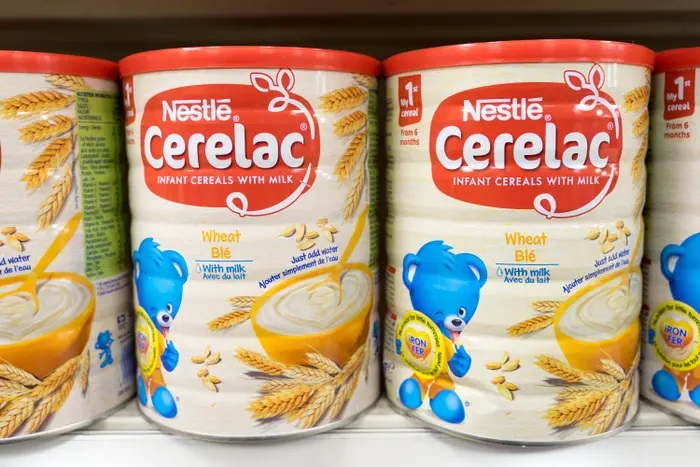Health
JUST IN: NAFDAC Gives Important Update On Nestle’s Baby Formulas With sugar
NAFDAC confirms that Nestle’s Cerelac infant cereals in Nigeria meet stringent registration standards aligned with national and international regulations.

NAFDAC confirms that Nestle’s Cerelac infant cereals in Nigeria meet stringent registration standards aligned with national and international regulations.
These include Nigerian Industrial Standards (NIS) and Codex Standards, ensuring safety and quality for infants from six months old.
The agency assures consumers of compliance with international guidelines, emphasizing its commitment to upholding food safety standards.
The National Agency for Food and Drug Administration and Control (NAFDAC) refuted claims made by Public Eye and the International Baby Food Action Network regarding Nestle’s infant formulas allegedly containing sugar and honey, stating that these products are not registered nor sold in Nigeria.
VerseNews reports that in a statement, NAFDAC clarified its regulatory diligence in registering infant and young children foods, adhering to international food standards such as the Codex Alimentarius and Nigerian Industrial Standards.
Public Eye’s findings highlighted that Nestle’s baby-food brands in low- and middle-income countries contain added sugar, contrasting with their sugar-free status in Switzerland and Europe.
The Public Eye and IBFAN scrutinised around 150 products sold by the food giant in lower-income countries and found that almost all the Cerelac infant cereals examined contain added sugar – nearly 4 grams per serving on average, equal to roughly a sugar cube – although they are targeted at babies from six months of age.
The highest amount – 7.3 grams per serving – was detected in a product sold in the Philippines. They also said most of the Nido powdered milk products for young children from one to three years old examined also contain added sugar – almost two grams per serving on average. The maximum value (5.3 grams) was detected in a product sold in Panama.
“This applies to all categories of infant and young children foods distributed by manufacturers, importers, and marketers of infant and young children foods operating within Nigeria.
“Adequate, optimal nutrition during infancy and early childhood is essential to ensure the growth, health, and development of children to their full potential.
“The Codex Alimentarius Commission implements the Joint FAO/WHO Food Standards Programme, developing international food standards, guidelines, and codes of practice with the mandate to protect the health of consumers and ensure fair international food trade. Nigeria (NAFDAC) is an active participant in these international food standards-setting arenas to contribute to Nigeria’s positions during food standards development.
“Regarding the mention of Nido follow-up milk formula in the publication, NAFDAC wishes to state that the product is not registered in Nigeria, is not known to the agency, and is not in circulation in Nigeria,” the statement read in part.
NAFDAC emphasized that Nestle’s Cerelac infant cereals distributed in Nigeria adhere to stringent registration protocols in alignment with national and international food standards.
These standards, including the Nigerian Industrial Standards (NIS) for Foods for Infants and Young Children (NIS 256:2010) and the Codex Standard for Processed Cereal-based Foods for Infants and Young Children (CXS 74-1981 adopted in 1981, revised in 2006, amended in 2017, 2019, and 2023), ensure compliance with safety, quality, and labeling requirements.
The agency clarified that these standards cover processed cereal-based foods intended as complementary feeding for infants from six months of age. Notably, international food standards allow for the addition of certain sugars to such products, provided they meet specified limits to safeguard infant health. Specifically, the maximum level of added fructose shall not exceed 0.9g/100kJ (3.75g/100kcal).
NAFDAC underscored its commitment to regulating infant and young children’s foods comprehensively, citing measures in place to enforce compliance with international guidelines and national regulations. It assured consumers of the safety and quality of infant foods available in Nigeria, reinforcing its dedication to upholding the highest standards in food safety.
























You must be logged in to post a comment Login